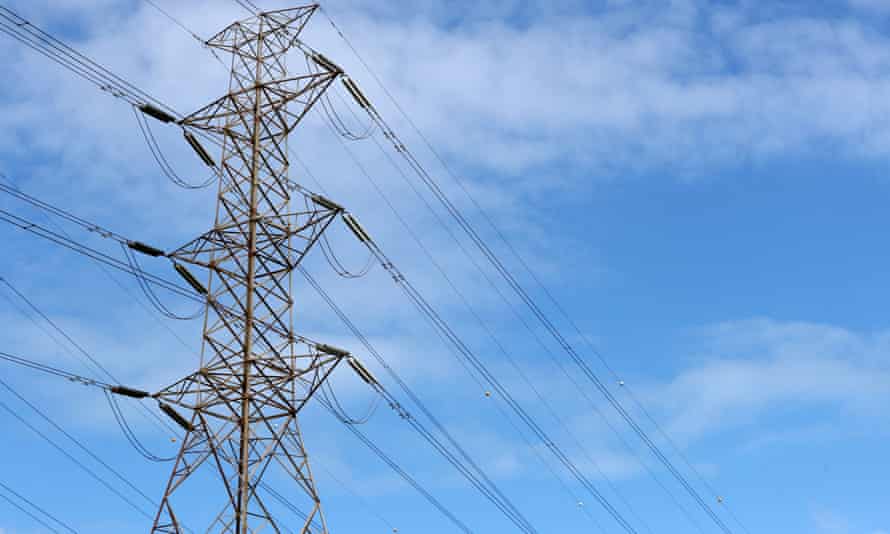Extract from The Guardian
Prime minister reassures industry the Coalition will back it during transition to ‘new energy economy’

Last modified on Tue 15 Jun 2021 15.50 AEST
Scott Morrison says Australia’s oil and gas sector will “always” be a major contributor to Australia’s prosperity and the Coalition will back producers both as exporters and suppliers to the domestic market during the transition to the “new energy economy”.
The prime minister, who is currently in London, used a video address to the Australian Petroleum Production and Exploration Association’s conference in Perth to reassure producers the government had a plan for the transition to low emissions as efforts to decarbonise economies have gathered pace in developed economies since the US re-entered the Paris agreement.
Morrison, who attended last weekend’s G7 meeting where leaders characterised climate change as an “existential threat” and committed to collectively cut emissions roughly in half between 2010 and 2030, told Tuesday’s conference “the oil and gas sector is a major contributor to Australia’s prosperity – always has, will always be”.
The prime minister told the fossil fuels executives as the government worked to secure the domestic economic recovery from Covid-19: “I want you to know we are backing you in to stay on top as one of the world’s leading exporters of LNG, and with a plan here in Australia that sees gas as key, the key to securing reliable, affordable energy in a transitioning energy market, moving to a new energy economy.”
Morrison said energy-intensive industries were the “lifeblood” of the economy – particularly in regional Australia.
“But that will not come at the cost of our heavy industry and manufacturing industries, it will not come through higher taxes, it will come through technology, and innovation and the entrepreneurship of our industry leaders, through supporting Australia’s resources sector to explore the future – that’s how we make our way.”
Morrison said the government’s objective was to “lead the world in these heavy industry and oil and gas sectors to ensure we can reduce emissions, be a successful part of the new energy economy”. He said if Australia could make that transition successfully, the transition could happen “anywhere”.
Gas is usually described as having about half the carbon dioxide emissions of coal when burned for energy. Studies have suggested its contribution to global heating is greater once methane, a particularly potent greenhouse gas that leaks from gas wells, is factored in.
The former chief scientist Alan Finkel, now special adviser to the government on low emissions technology, told the conference gas was “critically important” for supporting solar and wind in electricity generation as power grids move away from coal.
This argument has been disputed by analysts who say there is evidence batteries and pumped hydro can play the same role without releasing heat-trapping gas into the atmosphere. Finkel said batteries had “an enormous role” to play but were “not there yet, they’re coming” and the economics of pumped hydro were “a bit awkward”.

The Morrison government has been heavily criticised for committing $600m of taxpayer funds to Snowy Hydro Ltd to build a new gas-fired power plant in the Hunter Valley as part of what it has called a “gas-fired recovery” from recession. Energy experts have argued it is not needed to ensure power grid reliability over the next few years and is unlikely to play a significant role in keeping power prices down, as the government has claimed, because it would be rarely used.
Finkel said the main message that people should take from the International Energy Agency, which recently suggested there could be no more new coal-fired power plants or oil and gas fields if the world was to have a chance of limiting global heating to 1.5C, was that annual investment in renewable energy would need to triple or quadruple if the climate crisis was to be addressed.
“The energy system of the planet is just gigantic. There is no simple solution. We cannot transition from a fossil fuel-based energy system to a solar and wind and hydro-based system – and, in some countries, nuclear – in anything less than a few decades, but we have to be working on it now harder and harder and harder,” he said.
Finkel said people should be open to expanded use of carbon capture and storage (CCS) “rather than allow people’s misassociation of that with coal-fired electricity generation leave a negativity towards using a technology that will serve the planet very, very well”.
Kevin Gallagher, the chief executive of oil and gas company Santos and chairman of Appea, said Australia could become a “carbon storage superpower” that developed new industries storing carbon dioxide in “our vast tracts of pastoral and cropping land, and our depleted oil and gas reservoirs”.
“I urge everyone to therefore consider decarbonisation not simplistically as a threat, but as an opportunity to establish a new, large-scale industry producing carbon offsets that will be in heavy demand from emitting countries that lack Australia’s competitive advantages in carbon storage,” he said.
No comments:
Post a Comment